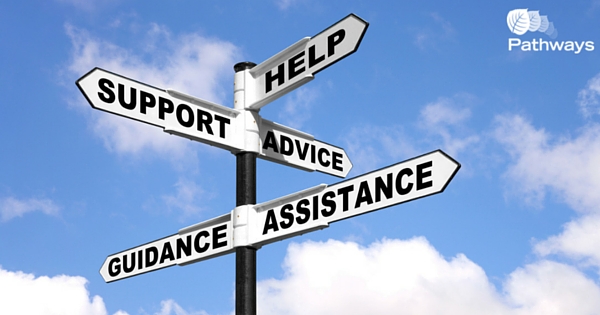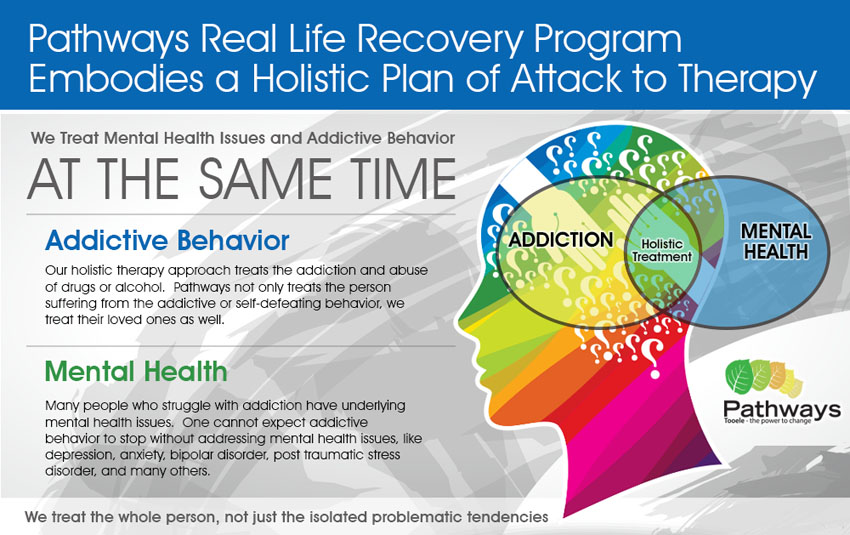Relapse Prevention: Utah Rehab Facility Can Help
 Relapse occurs when a recovering addict returns to an addictive behavior. Relapse prevention in Utah is designed to help avoid years of suffering caused by addiction. Some individuals will never have another opportunity to quit and may die as a result of their addiction. Focusing on prevention can therefore reduce relapses and save lives.
Relapse occurs when a recovering addict returns to an addictive behavior. Relapse prevention in Utah is designed to help avoid years of suffering caused by addiction. Some individuals will never have another opportunity to quit and may die as a result of their addiction. Focusing on prevention can therefore reduce relapses and save lives.
Skills to remain sober can be obtained by attending an alcohol treatment and drug rehab center in Utah. One of the most valuable skills learned is that of relapse prevention. It helps people who suffer from a serious addiction to making a plan as a way of preventing relapse.
Recovery is never a static situation. Instead, it’s ongoing, and relapse generally occurs when an attitude or behavior refers to the one that resulted when a person was actively using the drugs and/or alcohol. In order for relapse prevention to take place, there needs to be a change within behaviors, values, and attitudes.
An alcohol rehabilitation and drug rehab facility in Utah has the ability to teach relapse prevention. Utah centers have proven that they are able to reduce the likelihood of relapse. A recovering addict has the ability to learn new habits and attitudes that allow for continued sobriety. These skills show how substance abuse can be replaced with healthier habits, and positive peers can be easily identified. Without relying on an alcohol and drug rehab program, a recovering addict is going to be more vulnerable to relapse.
Facts About Addiction
Addiction causes changes in the brain, affecting both physical and mental health. The National Institute on Drug Abuse (NIDA) explains, “Drug addiction is a complex disease, and quitting takes more than good intentions or a strong will.” NIDA also points out that changes to the brain potentially affects the ability of an individual to exhibit self-control, leading to difficulty in resisting the impulse to use illicit substances.
While treatment helps individuals suffering from addiction to alcohol or other drugs get clean and sober, staying clean is an issue for many people. This is true even after successfully completing treatment for addiction to alcohol or other drugs or after completing a treatment program for individuals suffering from co-occurring substance abuse and mental health disorders. While many people do not go back down the dark path of substance abuse, the fact is that many people do relapse.
The Cause of a Relapse
The cause of a relapse is very individualized. When it comes to relapse prevention, Utah centers are going to take a unique approach with each person. This will make it easier to identify ways for a person to overcome their negative behaviors and achieve healthier habits. The people who fail to adjust to a life of sobriety are the ones that are generally more likely to relapse. Individuals need to understand what changes need to be made to their lives as opposed to simply setting alcohol and drugs down. The changes are ongoing, and some people reach a stopping point within their progress. When they fail to move forward, they can become disillusioned, and this is when they turned back to addiction. Many times, relapse can be avoided by utilizing prevention techniques.
Click Here to Read 7 Relapse Prevention TechniquesRelapse Prevention in Utah
Relapse is not uncommon; sometimes relapse occurs due to temptation, a trigger such as going around those toxic “old people, old places, old things” or an event such as loss of a job or death of a loved one. Just because you relapse once and get back on track, does not mean you no longer have any risk of a future relapse. One of the most important things for a person to understand is that relapse is not an event. Instead, relapse is a process that involves three stages: Emotional, Mental, and Physical.
- An emotional relapse is when a person will return to addiction because of being unable to cope with emotions and thoughts. People don’t think about using but the emotions are setting a person up for a potential relapse at some point in the future. Signs of emotional relapse include defensiveness, mood swings, intolerance, anxiety, and anger. A person likely won’t ask for help, they will have poor sleep habits, and isolate themselves.
- A mental relapse is when there is a war going on inside the mind. Some parts of the brain will want to use while other parts won’t. Often, there is the idle thought about using, though it will often lead to using. Signs of a mental relapse include thinking about places, people, and things you used with and glamorizing that lifestyle. It may involve lying, he up with old friends, and planning a relapse around the schedule of others.
- A physical relapse is when there are actual physical actions taken towards making the relapse complete. This may be driving to a dealer, driving to a liquor store, or driving to an old friend who has what’s necessary for a fix. Once it gets to the physical, is extremely difficult to stop the relapse process. Abstinence should not be stopped at this point because it involves brute force instead of recovery. It is best to acknowledge the early signs of relapse to be able to catch yourself before you reach the point of no return.
Establish a Relapse Prevention Plan
Relapse prevention focuses on tools and strategies that facilitate and promote abstinence from illicit substances. Even after successfully completing a treatment program, self-destructive behaviors potentially still get in the way of maintaining sobriety. Unfortunately, there is no simple pill that will prevent relapse in Utah. The reality is that it takes a lot of hard work and commitment to stay clean and sober. You will have the ability to develop a relapse plan and create pathways while you are in treatment.
Co-occurring Disorders and Relapse Prevention
 If you have a dual diagnosis disorder, you absolutely must undergo treatment for both the substance abuse and co-occurring mental health disorder simultaneously. All too often, people suffering from co-occurring disorders receive treatment for one disorder, but not the other. When you receive treatment for only one disorder, it potentially results in the other disorder actually worsening. When you receive treatment for both disorders, you improve your chances for successful recovery, less chance of relapse, and improve the overall quality of your life.
If you have a dual diagnosis disorder, you absolutely must undergo treatment for both the substance abuse and co-occurring mental health disorder simultaneously. All too often, people suffering from co-occurring disorders receive treatment for one disorder, but not the other. When you receive treatment for only one disorder, it potentially results in the other disorder actually worsening. When you receive treatment for both disorders, you improve your chances for successful recovery, less chance of relapse, and improve the overall quality of your life.
Triggers and Relapse
You likely already know what your triggers are. Triggers are very powerful and toxic to recovery. When you are aware of the relapse triggers, it makes it easier to prevent a relapse from taking place. Stay away from those dangerous old people, old places, and old things. Yes, that can be difficult sometimes, especially when the person you used to drink with or get high with is a relative or long-time friend. Some individuals cannot avoid triggers on their own, especially early on, after first leaving treatment. This is one reason why aftercare is crucial to the recovery process. A trained addiction specialist can help you to increase your awareness and devise specific techniques that work best for you and your personality.
Relapse Prevention Planning in Utah
When you recommit to long-term goals and create some new ones, you resist an addiction relapse even further. Self-awareness is going to be one of the best tools to prevent relapse in Utah. When you become aware of your emotions, thoughts, and actions, it will be easier for you to make better decisions. It can help to work within a structured environment. Then you can have a support group to help when and where you need it the most.
Learn more about relapse prevention in Utah by contacting Pathways Real Life Recovery today.

